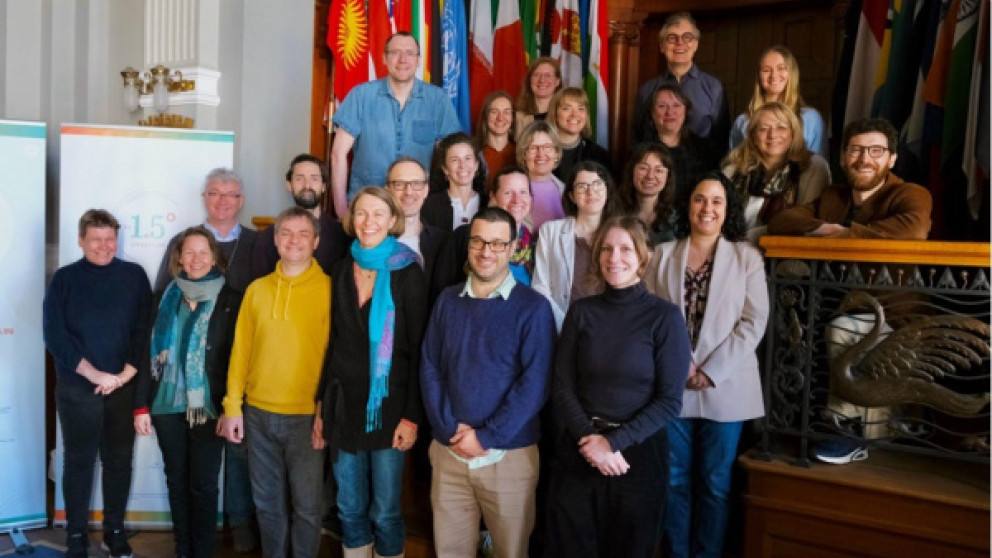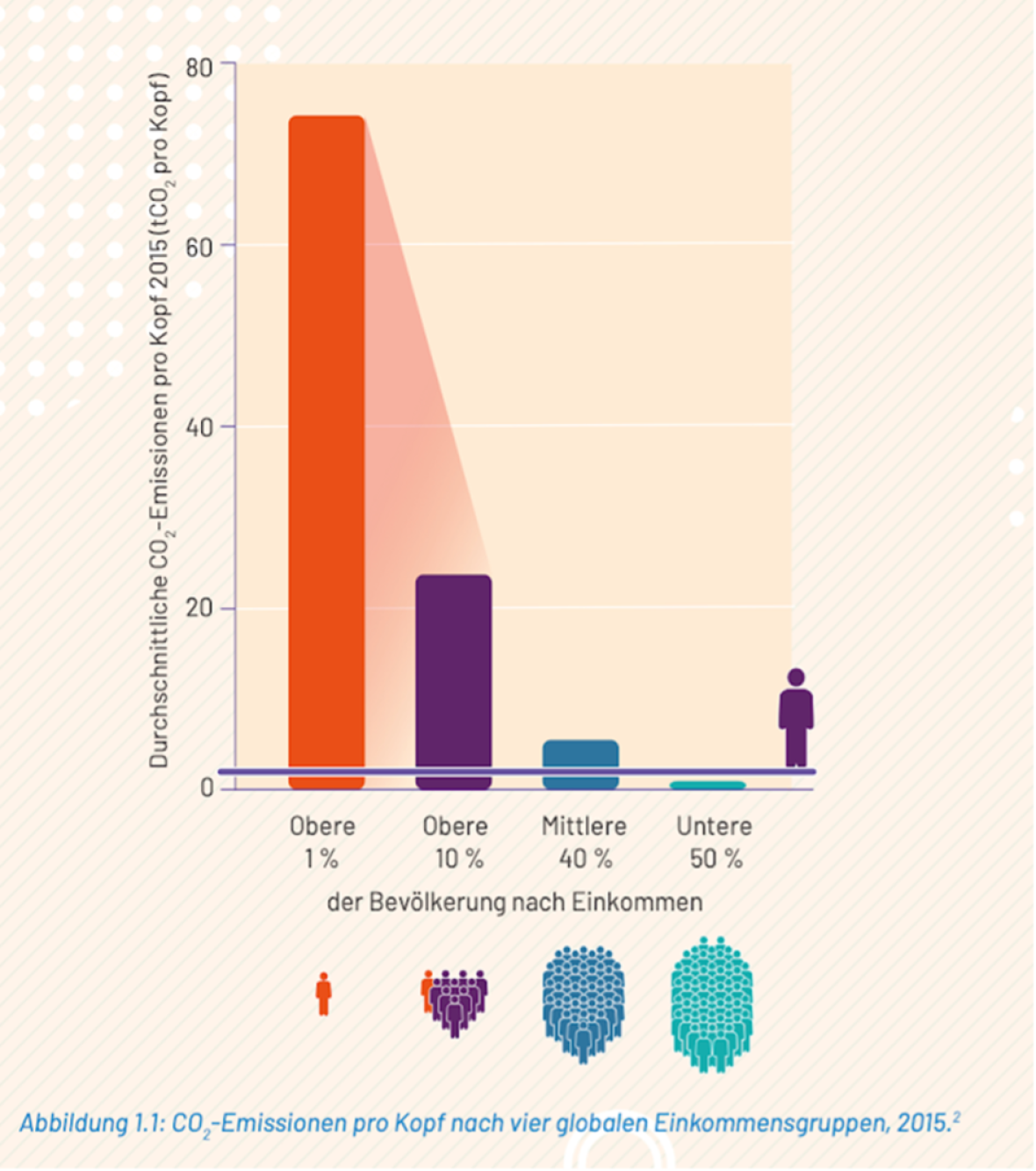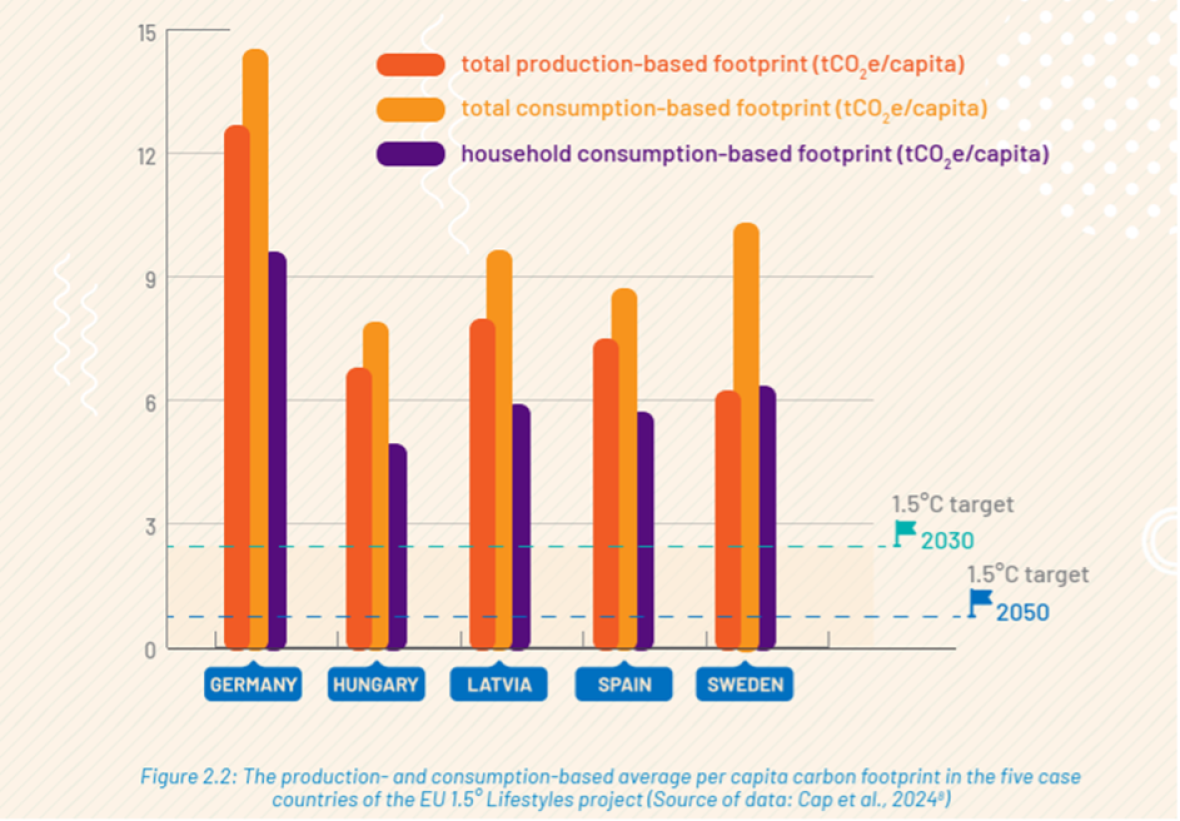Achieving 1.5°C lifestyles: why systemic change must accompany individual action
09.05.2025

In the race to limit global warming to 1.5°C, one crucial element has been largely under-addressed: our lifestyles. While renewable energy, electric vehicles and green technologies dominate the climate policy headlines, the fundamental way we live – what we eat, how we travel, the size of our homes, the frequency of our air travel – plays a key role in determining our collective carbon footprint.
This was the starting point for the EU 1.5° Lifestyles project: a four-year Horizon 2020 project to identify not only the lifestyle choices that are most compatible with climate goals, but also the structural changes and societal conditions needed to make these choices feasible, attractive and equitable.
Why focus on lifestyles?
The science is compelling. According to the IPCC, if the right policies, infrastructure and technologies are in place to support lifestyle changes, these shifts could lead to a 40-70% reduction in greenhouse gas emissions by 2050. This is a striking figure, especially given that much of the current climate discourse still focuses on decarbonising production rather than rethinking consumption.

As IPCC Working Group III co-chair Priyadarshi Shukla pointed out:
"With the right policies, infrastructure and technologies in place to enable changes in our lifestyles and behaviour, greenhouse gas emissions can be reduced by 40-70% by 2050. This offers significant untapped potential".
In other words, people matter – not just as voters and consumers, but as agents of change. But we cannot expect individuals to change in a vacuum. Behavioural change must go hand in hand with systemic change, and this is where the EU 1.5° Lifestyles project breaks new ground.
What is the EU 1.5° Lifestyles project?
Our aim was to help mainstream 1.5°C compatible lifestyles across Europe. The project involved nine partners in seven countries and focused on five national case studies. We used a combination of quantitative and qualitative research methods – input-output analysis, literature reviews, expert interviews, citizen and stakeholder 'thinking labs', playful engagement tools such as climate puzzles, and structured feedback mechanisms – to explore what is possible and what is acceptable.
We identified 50 lifestyle options in four key areas, including in “Housing” (e.g. energy-efficient heating, and reduced home size) “Food” (e.g. plant-based diets) “Mobility” (e.g. car and air travel) “Leisure” (e.g. reducing air travel, reducing consumption). Each was analysed for its potential to reduce emissions and for the structural and social factors that influence whether people can adopt them.
The limits of technology and growth
One of our most important findings came from the modelling phase of the project. Even under the most optimistic assumptions – of rapid technological innovation and continued economic growth – we found that these alone cannot deliver the emissions reductions needed to stay within the 1.5°C limit.

In other words, if we continue to increase consumption and energy use at current rates – even with cleaner technologies – we will miss our climate targets and overshoot the safe boundary of 1.5°C.
This finding challenges a core assumption of mainstream climate policy: that we can 'green' our way to sustainability without fundamentally compromising the pursuit of economic growth. Our research suggests otherwise. It shows that a serious conversation about sufficiency – living well with less – and alternative economic models is no longer optional, but essential.
Without addressing the demand-side – how much we consume and how we structure our societies – we risk locking ourselves into a future of escalating climate impacts.
So, what needs to change?
Our findings led us to a number of key recommendations, both at an individual and systemic level. We need to help people reduce their environmental impact in the following areas:
Mobility: Reducing dependence on cars, especially fossil-fuelled vehicles, by investing in public transport and walkable cities.
Nutrition: Shifting to plant-based diets, supported by awareness campaigns, incentives and food system reforms.
Housing: Promoting renewable heating and smaller homes, supported by affordable, sustainable housing infrastructure.
Leisure: Reducing emissions from travel – especially air travel – and promoting low-carbon leisure.
These changes won't happen through moral appeals alone. They require infrastructure, policies and social norms that make the sustainable choice easy, affordable and desirable.
What about rebound effects?
A hidden pitfall of efficiency gains is the rebound effect, where money saved from one low-carbon behaviour is spent on high-carbon activities elsewhere (e.g. using savings from fewer car trips to book a cheap flight). To prevent this, we need to (1) promote community-based solutions that foster shared values and mutual support; (2) regulate markets to make sustainable choices more accessible and standard; (3) promote ethical financial practices – investing in sustainability rather than overconsumption; and, (4) limit advertising for carbon-intensive lifestyles that fuel unnecessary desire and consumption.
Individual action cannot succeed without structural change
This means that we need to fundamentally rethink economic growth and adopt a differentiated approach: Which economic sectors need to grow (e.g., renewable energy) and – embracing a sufficiency mindset based around ensuring long-term societal and material security for citizens – which need to shrink (e.g., fossil car industry).
We also need to strengthen democratic processes to counterbalance the influence of vested interests and empower citizens not just as consumers, but as co-creators of policy.
We need those in charge to focus on implementing long-term and coherent, predictable policies that provide clarity, fairness and a shared future horizon.
Eco-social justice needs to be at the core of environmental and social policy. A recurring theme in our work is that climate justice and social justice must go hand in hand. Sustainable transitions will only succeed if they are fair, inclusive and democratically based. This is needed to ensure a fair distribution of responsibility based on power, resources and capacity. Eco-social principles must be embedded at the heart of policy, communication and everyday practice.
For this to be possible, we need to build broad coalitions for change – across communities, sectors and generations. Such coalitions are difficult – the broader our church, the more divergent its members. Working together around local issues that impact people provides the way forward.
Shared responsibility
The road ahead is built on shared responsibility and collective action. It's clear that the challenge is not just technological – it's cultural, political, societal and economic. Our current systems encourage over-consumption and entrench inequality. A 1.5°C-compatible future will require us to reimagine prosperity, to build societies where well-being is decoupled from endless material growth.
Crucially, responsibility must be shared, but not equally. Those with greater power, wealth and influence must lead the way – and create the conditions for others to follow. Citizens, communities, businesses and governments all have roles to play, but these roles differ according to access to resources and decision-making power.
Feedback on our outcomes from our policy and stakeholder workshops
We have taken the outcomes of our research to policymakers and stakeholders in the different partner countries as well as to the EU level. Together, we reflected on the most crucial strategies to bring about change:
Sustainable lifestyle choices should be made easy – through incentives, fair pricing and systemic support – in order to make them the default option.
We need strong, positive and enabling narratives, which engage citizens and adapt sustainability concepts to local realities, while countering misinformation. In particular, climate action should be reframed, focusing on fairness, well-being and co-benefits, e.g. in terms of health to drive engagement.
Empowering local action is crucial for change. Many strong, community-led initiatives and solutions are out there and they require adequate financial and organisational support.
Economic structures in particular require deep transformation: phasing out harmful subsidies, integrating well-being beyond GDP, internalising environmental costs and regulating corporate influence is essential to achieve a livable future for all.
Where do we go from here?
The last four years have been an incredibly intensive, but also exciting and moving experience. If you have taken part in one of our workshops, thinking labs, webinars or presentations, or just followed us online, thank you for your support and collaboration.
As we look to the future, we hope that the results of the EU 1.5° Lifestyles project will not only inform better policies, but also inspire a broader cultural shift towards liveable, equitable and climate-friendly lifestyles.

